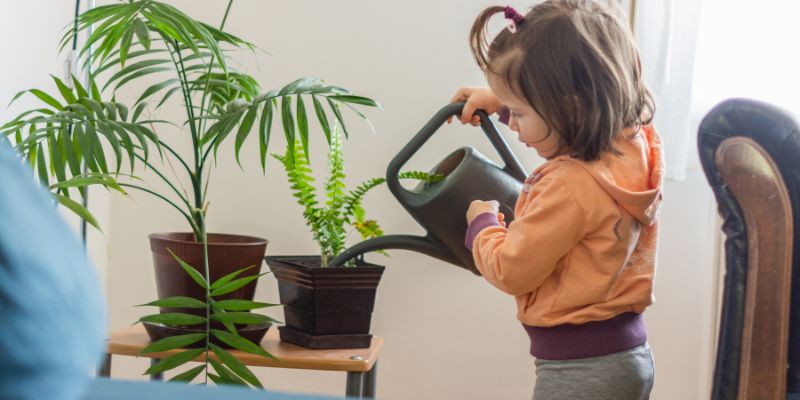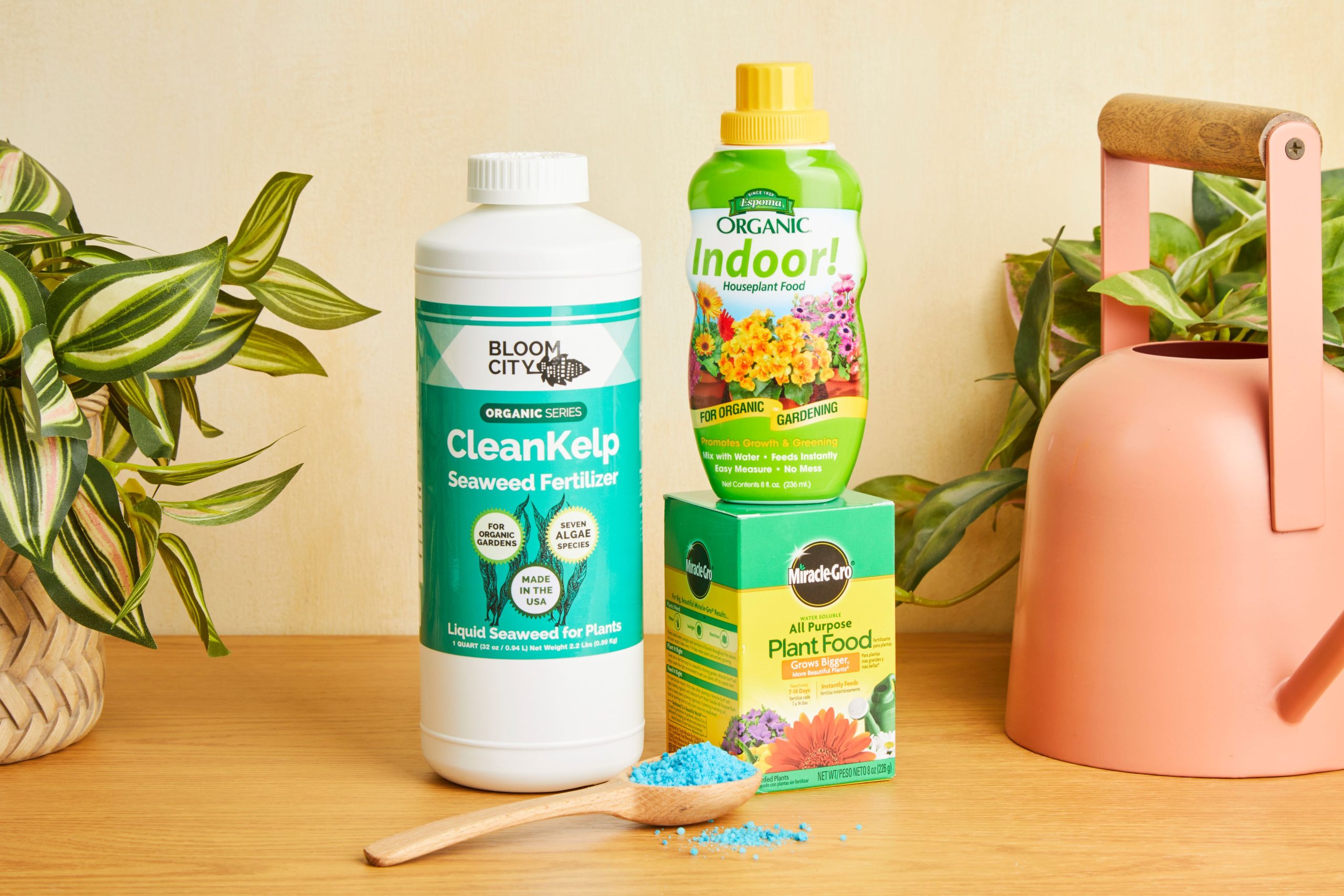Yes, it is generally ok to water house plants with tap water. The water quality can affect plant health over time.
Many people wonder if tap water is suitable for their beloved house plants. Tap water often contains chlorine, fluoride, and various minerals. While these elements are safe for human consumption, they can build up in the soil. This buildup may harm sensitive plants.
To mitigate this, let tap water sit out for 24 hours before using it. This allows chlorine to evaporate. Alternatively, use filtered or distilled water for more delicate plants. Regularly checking your plant’s soil can also prevent potential issues. Ensuring proper watering practices keeps house plants thriving and healthy.
Tap Water Composition
Understanding the composition of tap water is essential for plant care. Tap water contains various elements and substances. Some of these elements are beneficial, while others can be harmful to house plants.
Common Elements In Tap Water
Tap water usually contains calcium and magnesium. These elements are part of water hardness. They help plants grow strong and healthy.
Another common element is chlorine. It’s added to kill bacteria. Chlorine can harm plants if it’s in high amounts.
Tap water may also have small amounts of sodium. Sodium helps plants in tiny amounts but too much is bad.
| Element | Benefit |
|---|---|
| Calcium | Strengthens cell walls |
| Magnesium | Essential for photosynthesis |
| Chlorine | Kills harmful bacteria |
| Sodium | Helps in small amounts |
Potential Harmful Substances
Tap water can sometimes contain fluoride. Fluoride is added to prevent tooth decay. But it can cause leaf burn in sensitive plants.
Heavy metals like lead and copper might be present. These metals are toxic to plants. They can stunt growth or even kill the plant.
Another harmful substance is chloramine. Chloramine is a mix of chlorine and ammonia. It’s used to disinfect water. But it can damage plant roots over time.
- Fluoride: Can cause leaf burn
- Heavy Metals: Toxic to plants
- Chloramine: Damages roots
Impact On Plant Health
Watering your house plants with tap water can affect their health. Tap water often contains chemicals and minerals that might not be ideal for plants. Understanding the short-term and long-term effects helps in making the right choice.
Short-term Effects
In the short term, tap water can be safe for most plants. But some plants may show signs of stress. Common signs include:
- Yellowing leaves
- Wilting
- Spots on leaves
These effects are due to chlorine and fluoride in tap water. Sensitive plants react quickly to these chemicals. A simple way to reduce chlorine is to let the water sit out for 24 hours before using it. This allows chlorine to evaporate.
Long-term Consequences
Using tap water over a long period can lead to salt buildup. This happens because tap water contains minerals like calcium and magnesium. These minerals accumulate in the soil, affecting the plant’s ability to absorb water and nutrients.
Plants may show long-term stress through:
- Stunted growth
- Leaf burn
- Root damage
Regularly flushing the soil with distilled water can help. This removes excess salts and minerals. Consider using rainwater or filtered water for better plant health.
Here is a simple table showing the pros and cons of using tap water:
| Pros | Cons |
|---|---|
| Convenient | Contains chlorine and fluoride |
| Cost-effective | Can lead to salt buildup |
| Readily available | May cause stress in sensitive plants |
Understanding these impacts helps in making informed decisions. This ensures the long-term health of your house plants.
Types Of House Plants
Understanding the types of house plants can help determine if tap water is suitable. Different plants have different water needs. Some are sensitive to the chemicals in tap water. Others are hardy and can handle tap water just fine. Let’s dive into the specifics.
Sensitive Plants
Some house plants are highly sensitive to the chemicals in tap water. These plants may suffer from leaf burn, yellowing, or stunted growth. Here are a few examples:
- Spider Plants – Sensitive to chlorine and fluoride.
- Peace Lilies – Prefer distilled water to avoid leaf damage.
- Ferns – Thrive best with filtered or rainwater.
For these plants, using distilled or filtered water can prevent damage. You can also let tap water sit out for 24 hours to let chemicals evaporate.
Hardy Plants
Some house plants are more resilient and can tolerate tap water. These plants are less affected by the chemicals in tap water. Here are a few examples:
- Snake Plants – Very hardy and can handle tap water.
- ZZ Plants – Can thrive with regular tap water.
- Succulents – Generally tolerate tap water well.
These plants are great for beginners who may not want the hassle of special water requirements. They can thrive without much fuss.

Credit: heyrooted.com
Alternatives To Tap Water
Many plant lovers wonder, “Is it ok to water house plants with tap water?” Sometimes, tap water contains chemicals that can harm plants. To keep your plants happy, consider these alternatives to tap water:
Rainwater
Rainwater is a natural option for watering plants. It is free from chemicals and rich in nutrients. Collect rainwater using a barrel or a bucket. Ensure the container is clean to avoid contamination. This method is cost-effective and eco-friendly.
Distilled Water
Distilled water is another great alternative. It is free from minerals and chemicals that can harm plants. You can buy it from stores or make it at home. Use a distiller machine to purify water. Distilled water helps in preventing mineral build-up in the soil.
Filtered Water
Using filtered water is a convenient choice. It removes chlorine and heavy metals from tap water. You can use a water filter pitcher or a faucet filter. This method is easy and ensures your plants get clean water.
| Water Type | Benefits |
|---|---|
| Rainwater | Natural, nutrient-rich, eco-friendly |
| Distilled Water | Free from minerals and chemicals |
| Filtered Water | Removes chlorine and heavy metals |
Try these alternatives to keep your plants healthy. Your plants will thank you!
Expert Opinions
Is it okay to water house plants with tap water? Let’s hear from the experts. Botanists and horticulturists share their insights. Their opinions help us understand the best practices for plant care.
Botanists’ Views
Botanists study plants in-depth. They know about plant health and growth. Many botanists say tap water is fine for most house plants. Tap water contains minerals. These minerals can benefit plants. But, tap water also has chlorine. Chlorine can harm some sensitive plants.
Some botanists suggest letting tap water sit out. This lets chlorine evaporate. They recommend using room temperature water. Cold water can shock plant roots.
| Botanist Recommendation | Reason |
|---|---|
| Let water sit out | Chlorine evaporates |
| Use room temperature water | Prevents root shock |
Horticulturists’ Recommendations
Horticulturists specialize in garden management. They agree with many botanists. Tap water is generally safe for house plants. Horticulturists add one important note. Hard water can be an issue. Hard water has high mineral content. This can lead to salt buildup in the soil. Salt buildup can harm plant roots.
Horticulturists suggest using filtered water. Filtered water reduces salt and mineral content. They also recommend checking your water’s hardness. This can help you decide the best water for your plants.
- Use filtered water
- Check water hardness
- Avoid salt buildup

Credit: www.reddit.com
Practical Tips
Watering house plants with tap water can be tricky. Here are some practical tips to ensure your plants thrive.
How To Test Your Tap Water
Testing your tap water is simple and important. It helps you understand its quality.
- Purchase a water testing kit from a garden store.
- Fill a clean container with tap water.
- Use the kit to test for chlorine, pH, and hardness.
| Water Quality Factor | Ideal Range for Plants |
|---|---|
| pH Level | 6.0 – 7.0 |
| Chlorine | Less than 1 ppm |
| Hardness | Soft to moderately hard |
Simple Ways To Improve Water Quality
Improving tap water quality is easy. Follow these simple steps.
- Let the water sit: Fill a container and let it sit for 24 hours. This allows chlorine to evaporate.
- Use a water filter: Install a simple filter on your tap. This reduces impurities.
- Boil the water: Boiling helps remove chlorine and other chemicals.
- Mix in rainwater: Collect rainwater and mix it with tap water for a natural solution.

Credit: www.express.co.uk
Frequently Asked Questions
Can I Use Tap Water For My Indoor Plants?
Yes, you can use tap water for indoor plants. Let the water sit for 24 hours to dissipate chlorine.
What Plants Cannot Be Watered With Tap Water?
Certain plants like orchids, ferns, and carnivorous plants cannot be watered with tap water. Tap water may contain chlorine, fluoride, and salts that harm these sensitive plants. Use distilled or rainwater instead.
How Do I Know If My Tap Water Is Safe For My Plants?
Test your tap water for pH, chlorine, and heavy metals using a water testing kit. Verify safe levels for plants.
What Water Is Best For House Plants?
Filtered or distilled water is best for house plants. Avoid tap water with chlorine or fluoride. Rainwater works well too.
Conclusion
Watering house plants with tap water can be safe. Consider the quality and type of plants you have. Letting tap water sit overnight helps reduce chemicals. Always observe your plants for any signs of distress. With proper care, your house plants can thrive.
Adjust your watering routine as needed for best results.

My mission is to help you bring the beauty of nature indoors with expert advice, detailed plant care guides, and creative design ideas.



Leave a Reply